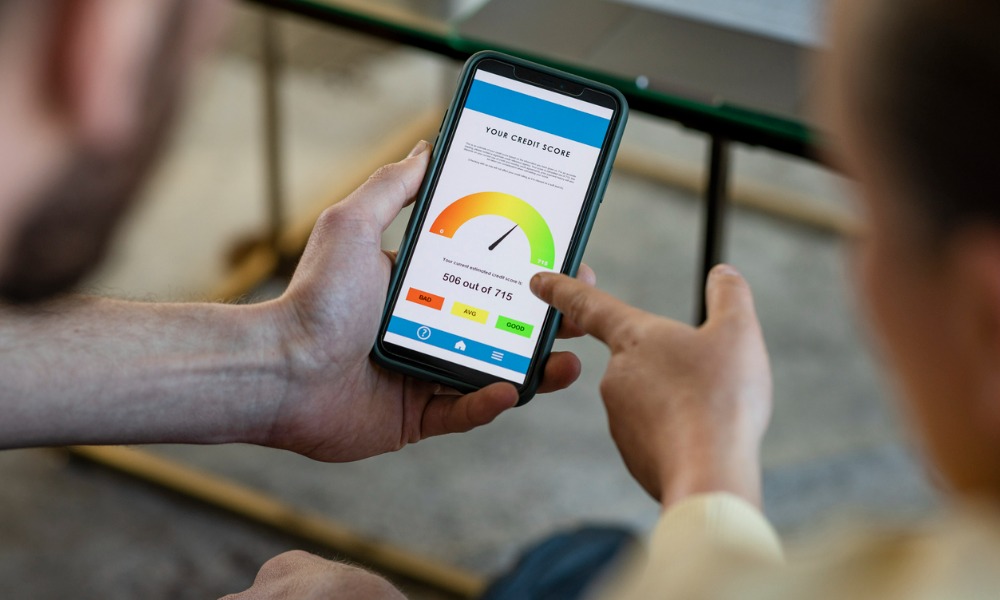There are numerous ways to improve your credit score to buy a house in the UK. Here is everything you need to know

If you want to apply for a mortgage to buy a house in the UK, you will first need to ensure you are in good financial standing. One of the more important pieces of information you—and your potential lender—will need review is your credit score.
If you have a bad credit score, lenders will view you as a risk and either deny your mortgage application or force you to pay a large deposit and higher interest. If, on the other hand, you have a good credit score, you will be open to many more lenders and more favourable home loan terms.
But what is a credit score? What determines it? And can you still get a mortgage if you have a bad credit score? In this article, we will detail everything you need to know about the credit score you need to buy a house in the UK.
What credit score do you need to buy a house in UK?
Firstly, it is important to establish what a credit score is. There are three credit reference agencies in the UK that determine your credit score, which are: Experian, Equifax, and TransUnion. Each of these agencies provides a different credit score. Here is a quick look at how each agency scores credit:
- Experian: Out of 999
- Equifax: Out of 700
- TransUnion: Out of 710
Because they each have a different rating system, you will find that you get a different score from the different agencies. However, if the financial information they have about you is accurate, it will not impact your ability to borrow money. A basic rule to note here is that, typically, the smaller your mortgage deposit, the better your credit score will have to be for lenders to approve your mortgage application.
What is a good credit score in the UK?
As mentioned, the definition of a good credit score—in other words, the credit score you need to buy a house in the UK—differs depending on the credit reference agency. For instance: According to Experian (which scores out of 999), a good credit score is 700 or more, while a credit score of 800 or more is considered excellent.
An excellent credit score with Equifax, on the other hand, is usually around 475 or more. With TransUnion, you will get a rating out of five based on your credit score. For instance, a score between 628-710 with TransUnion is given the highest rating of five, I.e., excellent. Essentially, the higher your credit score, the more likely lenders are to consider you a low risk as borrower, which means you will have a better chance to make a lower deposit and have more favourable interest rates throughout the life of the loan.
Can I buy a house with a bad credit score in the UK?
While getting a mortgage with a bad credit score in the UK is possible, it can be much more difficult. Not only that, but because you will likely be considered a higher risk as a borrower, you may have to make a larger deposit and pay higher interest rates.
Remember: Mortgage lenders review the credit scores of anyone who applies for a home loan, using credit history to determine if the borrower is likely to make mortgage repayments. This is why, if you have a bad credit score, it will be more difficult for you to secure a mortgage. For instance: If you have had a loan and were unable to repay it each month consistently, it indicates to lenders that you may be unable to afford to make mortgage repayments.
Having said that, having bad credit does not necessarily mean that you will be unable to get a mortgage; it may vary depending on your credit rating, because there is a fine distinction between bad and fair credit scores. In fact, some lenders offer mortgages that are designed specifically for potential borrowers with bad credit. As mentioned, however, these mortgages typically include higher interest rates and fees.
What is bad credit?
If you have bad credit, it essentially means that you have a low credit score as defined by Experian, Equifax, or TransUnion. Some common reasons that can lead to bad credit include missing repayments on credit cards or loans or not paying your bills on time.
Here are some other factors that can lead to a bad credit rating:
- Missed repayments
- Defaulted on payments
- Collected a high amount of debt
- Recently declared bankrupt
- Served a County Court Judgement (CCJ)
If you are denied due to a bad credit score
If your mortgage application is denied because you have bad credit, your best move is to build up your credit score and reapply. Building up your credit score will improve your chances of getting approved for a mortgage, regardless of whether you are a first-time home buyer, are moving, or want to remortgage.
How to get a mortgage with bad credit
If your mortgage application is denied, you will want to build your credit score before you apply for another home loan. Keep in mind that this could take some time; you can only build your credit score slowly, over time. Many negative items will remain on your credit report for roughly six years, including missed payments and defaults, CCJs, and bankruptcy.
If you are unsure if your credit score is high enough to qualify you for a home loan, you can apply for a mortgage Agreement in Principle, which means a lender will conduct a soft credit check to determine your credit score. While this will appear on your credit file, it will not be visible to other lenders, which also means that if you are declined, it will not impact your ability to apply for a home loan with another mortgage lender.
In the short term, there are a few things you can do to improve your credit score, such as:
- Meet all bill payment deadlines
- Pay off outstanding debt
- Cancel unused bank accounts and/or credit cards
- Check for fraud
- Look for and amend any errors on your credit report
- Register to vote
While improve your credit score may not guarantee mortgage approval, it is a good place to start.
What is the lowest credit score to buy a house in the UK?
While there is no fixed minimum credit score requirement to purchase a property in the UK, a good credit score to obtain a mortgage with most lenders is at least 620. A good credit score is an important factor when applying for a home loan, but it is important to remember that it is not the only factor that lenders consider when reviewing a mortgage application.
It is entirely possible to obtain a mortgage with a credit score of 550 in the UK. However, it will likely be more of a challenge. Typically, lenders favour borrowers with higher credit scores because it shows a lower risk of default. If you find yourself in this position, you will likely need to provide additional documentation to prove you have a stable income and a solid financial history.

What increases your credit score?
There are numerous ways to increase your credit score. While some of these strategies and habits can improve your credit score over weeks or months, others can increase your credit score quickly, within a single day. Here are a couple key strategies you can use to increase your credit score:
- Check your credit history
- Catch up on your bill payments
Let’s take a closer look at each to better help you increase your credit score:
1. Check your credit history
A great way to improve your credit score is to review your credit history, so that you know what you are working with. To do this, you can pull your credit report from either (or each) of the UK’s credit reference agencies: Equifax, Experian, and TransUnion. You can then review each report to determine what is working for and against your credit score.
Factors that play a role in your credit score, for better or worse, include whether you make payments on time, how low the balances are on your credit card(s), the mix of different loan accounts and credit cards you have, older credit accounts, and minimal inquiries for new credit. Major credit score detractors include collections, judgements, high credit card balances, or missed payments.
2. Catch up on your bill payments
Your payment history plays a significant role in your credit score, which is why it is better to have repaid debts on your record. It would work in your favour if you paid your debts responsibly—i.e., on time. It is therefore important to avoid late payments at almost all costs. Here are some simple strategies you can use to do that:
- Create a filing system to keep track of monthly bills
- Set due-date alerts to remind you when a bill is upcoming
- Automate bill payments from your bank account
As another option to catch up on your bill payments, you can charge all your monthly bill payments to a credit card, or as many bill payments as possible. To be successful, however, this strategy relies on you paying the balance in full each month to avoid the usually astronomical interest that comes with most credit cards. If it results in on-time payments, this strategy could simply for bill payments and boost your credit score.
What is the average UK credit score?
According to Experian, which rates credit scores out of 999, the average credit score in the UK is 797. Credit scores can, however, vary depending on the credit reference agency. There is another factor at play in average credit scores as well; different areas of the UK have different credit score averages.
Here is a look at the highest average credit scores in different parts of the UK:
- London: 893 (good)
- Isle of Scilly: 886 (good)
- Wokingham: 880 (fair)
And these are the lowest average credit scores in the UK, by area:
- Kingston-Upon-Hull: 702 (poor)
- Blaenau Gwent: 707 (poor)
- Blackpool 713 (poor)
As we have seen, there are numerous factors that can lead to both a good and bad credit score. Ideally, you will not wait until you want to apply for a mortgage in the UK to try and improve your credit score—it should be a long-term endeavour. However, if you are stuck, there are strategies that you can do to improve your credit score in the shorter term.
Before committing yourself to applying for a mortgage to buy a house in the UK, do your research, such as checking in on what the best mortgage lenders in your area can do for you.
Have experience increasing your credit score to buy a house in the UK? Let us know in the comment section below.



